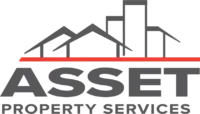
Over recent years, the RBA has actively supported the growth of Rosebank business employees through various wellbeing courses, aiming for both business benefit and individual development. To experience one firsthand, an RBA employee and nine other people sponsored by the RBA attended the EMA Stress Management and Mental Resilience course on April 19. The course covered key topics like mental resilience, stress response, wellbeing under attack, managing thoughts, fostering a positive workplace culture, and the importance of quality rest and lifestyle.
Mental resilience enables us to cope with stress, bounce back from challenges, and maintain focus on our goals. It’s a skill that can be developed, benefiting overall wellbeing and success. High resilience levels correlate with improved mental health and lower rates of depression and PTSD. Building resilience through healthy habits enhances life quality and achievement.
EMA course tutor Peter Simunovich engaged the attendees immediately in interactive discussions about the warning signs of stress and mental illness, such as withdrawal, reduced functionality, apathy, disconnection, nervousness, and mood changes. Recognising these signs is crucial, given the potential harm of mental stress, as highlighted by the Health and Safety at Work Act 2015 (HSWA), which prioritises both physical and mental health protection.
Peter explained the brain’s “use it or lose it” principle for managing stress and anxiety, in which it favours active connections over inactive ones. Unmanaged stress can narrow focus, reinforce negative patterns, and hinder adaptability. Occasional anxiety is normal, but factors like workloads, job insecurity, noise, and traffic can trigger stress.
In stressful situations, the brain’s emotional system tends to dominate, while cognition may falter. To manage acute anxiety, techniques like deep and slow breathing; cold treatments on pulse points; cold showers; brief, vigorous exercise; and animal interaction can help refocus and alleviate anxiety.
The attendees conducted a life balance self-assessment exercise comparing our stress triggers with rewarding activities. Ideally, these should be balanced, but as discovered, most of the attendees found that their stressors outweighed the rewards.
The course also highlighted workplace wellness factors such as time pressure, work hours, roles, conflicts, organisational changes, job control, and support. A key takeaway was: “The goal of an organisation should be to grow employees and train them so they can leave and be successful. The trick to retaining them is to create an environment and treat them in such a way that they never want to.”
Peter distinguished between mental fatigue, which stems from prolonged focus, and physical tiredness. Mental fatigue depends on sleep quality, workload, volume, and rest intervals. As workplace burnout rises, balancing work and lifestyle while improving sleep quality becomes essential.
The course enriched the participants’ understanding of stress management and mental resilience. After the course, a couple of attendees shared their thoughts.
“It was fantastic to be a part of the RBA team attending the Stress Management and Mental Resilience course. Focusing on our mental health and wellbeing within the workplace is more important than ever, and this course was a good reminder of that. It was packed full of useful insights.” – Jared (Advanced Parts)
“I found the course extremely engaging and informative. It gave me some great tools to assess my own stress as well as recognising it in my team and colleagues.” – Ethan (Etel Transformers)
Thanks to Peter Simunovich from the EMA, the participants gained valuable insights that enhanced their coping strategies and overall wellbeing. This knowledge will be invaluable in fostering a healthier, more resilient workplace culture, along with enriching both their personal and professional lives.
Roundabout Magazine
This article was published in Roundabout Magazine Issue 207 (May 2024).









